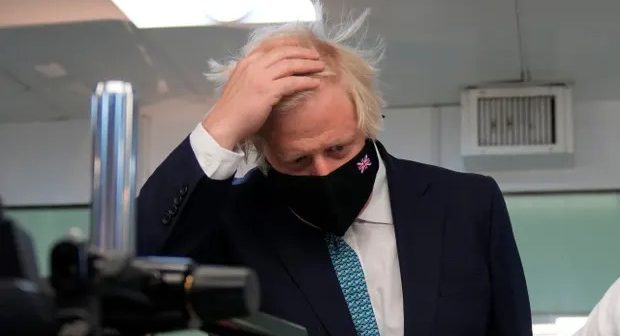Boris Johnson has laid the groundwork for the next general election with a ruthless cabinet reshuffle, designed to clear out failing ministers and hand Michael Gove the key job of making “levelling up” a reality for sceptical voters.
On a day of dramatic developments in Westminster, Johnson sacked three cabinet ministers including the gaffe-prone education secretary Gavin Williamson, and shifted Dominic Raab from the Foreign Office to the Ministry of Justice. Liz Truss, the media-savvy darling of Conservative grassroots members and champion of free markets, will replace Raab as foreign secretary.
Johnson kicked off the reshuffle by inviting ministers set to be sacked or sidelined to his House of Commons office, as MPs began a debate called by Labour over the £20-a-week cut to universal credit coming into effect next month.
Williamson had been widely expected to be offered an alternative role – perhaps his old post as chief whip – but was instead dispatched straight to the backbenches.
Raab managed to wrest the consolation title of deputy prime minister from Johnson after fraught negotiations but the move to justice secretary was widely seen as punishment for his role in the chaotic evacuation from Afghanistan last month.
No 10 also appeared to signal its determination to continue prosecuting the culture wars, with the surprise appointment of Nadine Dorries as culture secretary. Dorries is a longstanding and vehement critic of the BBC, arguing against the continuation of the licence fee and labelling it institutionally skewed. In 2018 she called it “a biased leftwing organisation which is seriously failing in its political representation, from the top down”.
Downing Street sources insisted the former I’m a Celebrity contestant had not been put in place to pursue an “anti-woke” agenda, describing her as a “rising star” who could communicate well with the public and who had been consistently loyal to the prime minister.
In the Department for Education, Williamson will be replaced by Nadhim Zahawi, an Iraqi-born entrepreneur who arrived in the UK as a child speaking no English. Zahawi is viewed as a safe pair of hands in Downing Street after his management of the Covid vaccination programme.
Gove emerged from the reshuffle as the secretary of state of the Ministry of Housing, Communities and Local Government (MHCLG) with responsibility for enacting Johnson’s levelling-up agenda across government.
In July, the prime minister gave a speech on levelling up that was widely derided as lacking in concrete policies, and Tory MPs in so-called “red wall” seats are anxious about whether they can make good on their promises to former Labour voters.
Gove will also have the job of defusing the row over radical planning reforms, which have sparked a backlash in traditional Tory seats like his own in Surrey Heath. He will also remain in charge of protecting the union and fighting elections.
Johnson’s official spokesperson said the reshuffle was the second part of the plan to relaunch government strategy following the winter plan for Covid announced on Tuesday.
“The PM set out his plan for managing Covid during the autumn and winter,” he said. “But the government must also redouble our efforts to deliver on the people’s priorities. The PM will be appointing ministers [on Wednesday]afternoon with a focus on uniting and levelling up the whole country.”
Gove will take on the role from Robert Jenrick, who was an unexpected victim of Johnson’s removal of unpopular ministers.
Ryan Shorthouse, chief executive of the Conservative thinktank Bright Blue, said Johnson appeared to be “rewarding those who are good at publicity and removing those that have had overwhelmingly negative or no media for their work.
“Raab has been demoted for Afghanistan. Williamson departs because of exams and assessment. Jenrick for planning reforms. Buckland for relative silence,” he said.
Source: The Guardian

